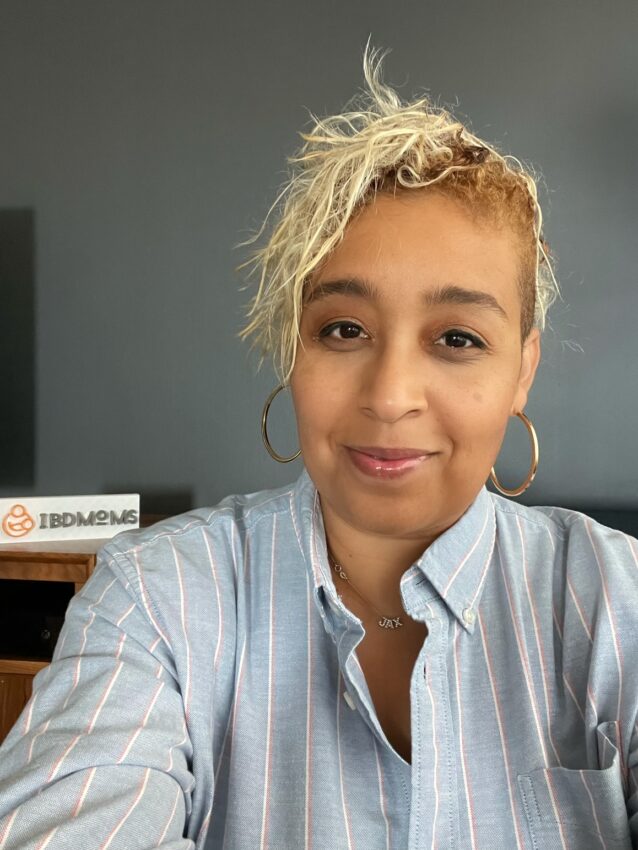The Beginning
There are moments in your life when everything changes entirely, and the memories of those moments are so vivid that you feel like you are reliving them when you think of them. For moms, it’s the moment you hear your baby cry for the first time. For patients, it’s the day you were diagnosed with your first chronic condition.
“You have ulcerative colitis.”
He said it so matter of factly, it took me by surprise. This doctor knew what I had, and he was sure of it. After asking me three questions, he had the answer.
“I’m pretty sure you have had this since you were 18. What you are describing to me, its progression. Yea, kiddo, you have inflammatory bowel disease.”
My mother squeezed my hand, breaking my blank stare. What did he mean? Did that mean that every single doctor that told me I had a poor diet, or it was the freshman 15, or I was stressed, or it was normal…were wrong? Were they all wrong? And seven years and three questions later, do I have the correct diagnosis? I had relief for a few seconds until my mother asked, “What is ulcerative colitis?” When the doctor answered, “Have you ever heard of Crohn’s disease?” My brain shut down.
Yes, I had heard of Crohn’s disease. I watched my younger cousin bravely be wheeled off into surgery on her 16th birthday because of Crohn’s disease. A ringing in my ear started, and I just stared out of the window. How could I have inflammatory bowel disease? My cousin and I were related by marriage, and no one else in my family had an IBD. What did I do wrong? And would I always feel this bad? What was going to happen to my career? Would I have children? Why was this happening to me? I shut down. The fear of the unknown was just too much for my young 24-year-old brain. I was spinning. A blood test and one colonoscopy later, it was confirmed, I had left-sided ulcerative colitis.
What Is IBD?
According to the Mayo Clinic, IBD or inflammatory bowel disease is the umbrella term to describe two disorders that involve chronic inflammation in your digestive tract, Crohn’s disease, and ulcerative colitis. Crohn’s disease is the more familiar of the two conditions. What’s the difference? Crohn’s disease affects the entire GI. Not necessarily all at the same time, but it can be found anywhere in the GI tract. In contrast, ulcerative colitis is found solely in the colon.
When I was diagnosed, I believed IBD to be centered and confined to the gut. So my symptoms of bloody stool, urgency to poop, painful and unbearable stomach pain, lack of appetite, and up to 10 bathroom visits a day were expected. What I didn’t expect was the back pain, anemia, joint pain, low blood pressure, severe dry eye, uveitis, hair loss, dental issues, jaw pain, ulcers in my esophagus, skin issues, canker sores, insomnia, disruptions with my menstrual cycle, kidney stones, anal fissures, and chronic fatigue. These extra-intestinal manifestations were like opening boxes of coal outside in the rain on Christmas morning in pajamas. And while people’s unconscious bias prevented them from acknowledging that I, as a Black person, was a patient with inflammatory bowel disease, these conditions worsened. And like many patients, I had surgery to alleviate my symptoms. In 2012, after living with the uncontrolled illness for over three years because of insurance coverage complications, I had to have my colon removed. Thank goodness I did because apparently, it perforated in 5 places upon removal. Surgery saved my life. IBD had rearranged my life and turned it upside down. However, after surgery, I found a new purpose and mission. Advocacy.
IBD + Me
It would be silly to say that living with IBD hasn’t changed me. Just like motherhood changed me, this disease changed me. This condition changed the entire trajectory of my life, affecting my education, my career, my relationships, my finances, and my motherhood journey. However, it wasn’t all negative. IBD gave me direction while it modified my life and forced me to focus on essential things. It ignited passions and a drive that wasn’t clear to me before. It also revealed to me who I was as a human being. It made me a fighter and strong. It brought me incredible friends and a community of humans I don’t know how to live without. There are days I curse IBD and some days that I am grateful for it.
You Are Gonna Be Okay
This week is Crohn’s & Colitis Awareness Week. Many newly diagnosed people, the parent of a newly diagnosed patient, or the spouse of a newly diagnosed patient will be searching the hashtags: #IBD #CrohnsDisease #UlcerativesColitis #CCAwarenessWeek . They will be looking for that story where the patient could go back to their everyday life after taking their meds for a little bit. They will be looking for a diet or a lifestyle that will heal them of the disease. They will be looking for a cure. Unfortunately, you will not go back to your old normal. You may have to be on your meds for the rest of your life. There’s no easy fix like a diet or some lifestyle change that will ultimately heal all of the inflammation in your GI tract. There is no cure. What works for one patient may not work for you.
You may have to try different medications, diets and see other doctors before finding what will work for you. And even that is not guaranteed to work for you forever. But you will be okay. You will live and thrive and be okay. There will be ups and downs, but you will be okay. You will have to be flexible with treatment options and patient with your body, but you will be okay. You will feel better and be okay. Continue to see your physician—Check in with the community online. Stay on top of your meds, tests, and treatments. Do what works for your life with IBD. This isn’t a competition or an exam. This is your life, and you can live a full one with IBD.


